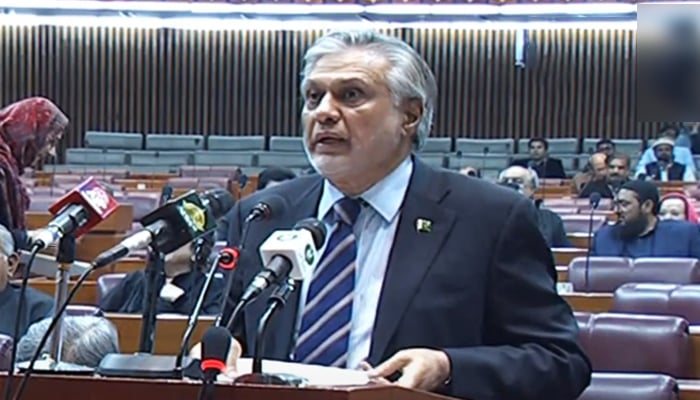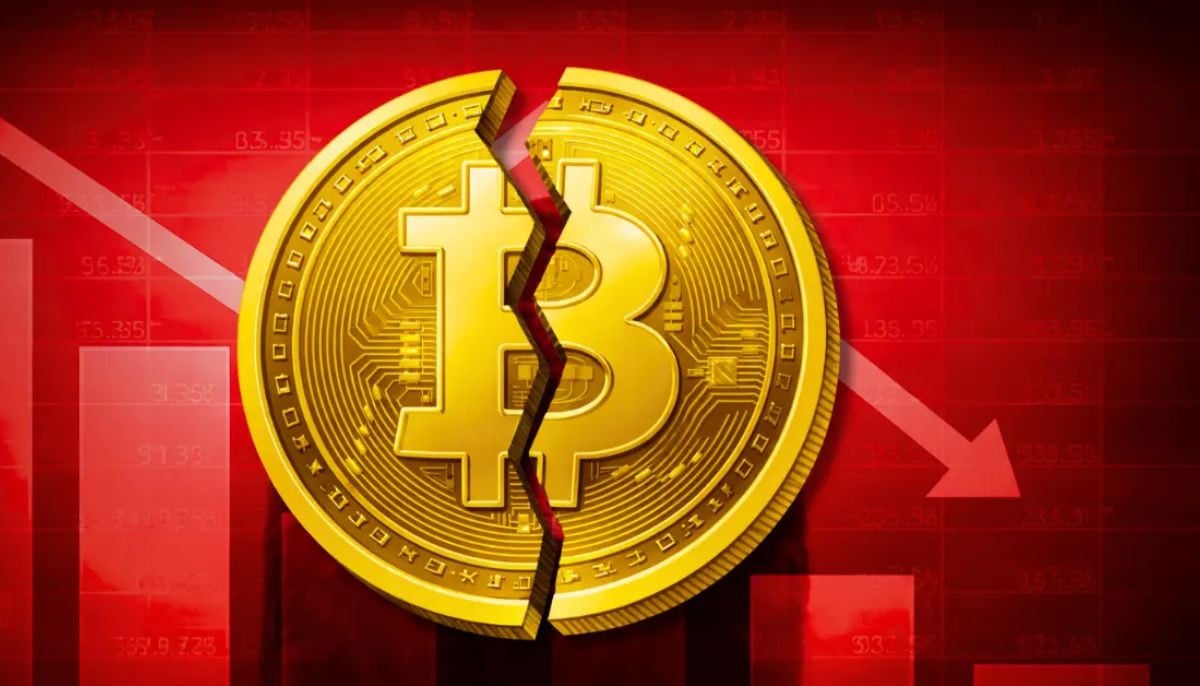Govt presents 'mini budget' in parliament amid scrambling for IMF loan
Govt eyes collecting Rs170 billion in revenue through additional tax measures
Finance Minister Ishaq Dar Wednesday tabled the Finance (Supplementary) Bill 2023 — or the "mini-budget" — in the National Assembly and Senate as the government seeks to meet the preconditions for unlocking the $1.1 billion International Monetary Fund (IMF) loan.
Running against time to pacify the IMF for the revival of the bailout programme, the government had last night approved hiking the General Sales Tax GST rate from 17% to 18% and increasing the Federal Excise Duty (FED) on cigarettes in order to fetch an additional Rs115 billion out of Rs170 billion agreed to by Pakistan in line with the IMF conditions.
Through the "mini-budget", the Pakistan Democratic Movement (PDM)-led government aims to reduce the budget deficit and broaden its tax collection net — in order to meet the conditions laid forth by the Washington-based lender.
The National Assembly will not be sending the bill for further deliberations to the Standing Committee on Finance and Revenue, while the Senate has referred the legislation to the relevant committee.
Proposals
- Increase in GST on luxury items from 17% to 25%
- FED on business and first-class air tickets be increased to Rs20,000 or 50% — whichever is higher
- 10% withholding adjustable advance income tax to be imposed on marriage functions
- Increase in FED on cigarettes, soft and sugary drinks — from Rs1.5 per kg to Rs2 per kg
- Increase in GST from standard 17% to 18%
- GST to not be imposed on essential goods — wheat, rice, milk, pulses, vegetables, fruits, fish, eggs, meat
- BISP stipend to be increased; govt to allocate Rs400 billion for programme
Talking to reporters after the session, Finmin Dar said that he expects the bill to be passed in both houses by Monday or Tuesday as Senate Chairman Sadiq Sanjrani has "given us till Friday".
Pakistan and the IMF could not reach a deal last week and a visiting IMF delegation departed Islamabad after 10 days of talks but said negotiations would continue. The $350 billion economy is in dire need of funds as it battles a wrenching economic crisis.
In a bid to appease the IMF, the government sought to roll out the fiscal measure through an ordinance, but President Dr Arif Alvi advised the administration to seek parliament's consent instead.
An agreement on the ninth review of the programme would release over $1.1 billion of the total $2.5 billion pending as part of the current package agreed upon in 2019 which ends on June 30. The funds are crucial for the economy whose current foreign exchange reserves barely cover 18 days' worth of imports.
Protecting common people
In his address to the lower house of parliament, FinMin Dar said that the "nation is facing unprecedented crises" due to the Pakistan Tehreek-e-Insaf (PTI) government's "substandard" policies.
The country, during the Pakistan Muslim League-Nawaz's (PML-N) previous government, had witnessed economic development and the gross domestic product (GDP) had increased by $112 billion.
"The PML-N always tries to take fewer loans. Foreign investment had also increased during the PML-N tenure. In contrast, during the PTI government, the loans hit record highs, and a common man's income also plunged."
The finance czar went on to say that apart from overcoming the "challenges that the present government faces due to PTI's policies", last year's floods had also incurred losses worth more than $8 billion.
"But, we should always prefer the state over politics," he reiterated — the mantra that PDM leaders have time and again propagate as they face an uphill task on the economic front.
The finance minister insisted on reforms in the power sector, deeming those as key for the country’s economy. “International financial institutions have asked for reforms in the sector,” he said.
Senator Dar said the PDM-led administration has fulfilled the promises made to the IMF by the PTI-led government. “We are paying a hefty political price for all this. We consider the state, and not politics, important.”
The minister said that efforts are being made to impose taxes in such a way that common folk don’t have to face difficulties.
Dar informed the parliament that the government has allowed the import of five-year-old tractors and has set a target to install 75,000 solar tube wells.
The senator said that Prime Minister Shehbaz Sharif will soon take the nation into confidence regarding the mini-budget. He also informed parliamentarians about the prime minister and cabinet to propose a plan reducing its expenses.
“Initially, the economic growth will be slow, but will go up 4% later,” the minister said. Dar added that notification to open Letters of Credit (LCs) of medicines, petroleum, and sports have been issued.
The present and previous revenue target of Rs170 billion will be met, the minister said.
Speaking about provisions for farmers and the agriculture sector, the politician said that the government has already announced a Rs2,000 billion package for farmers, while Rs1,000 billion have been distributed so far.
“Farmers will be given cheap loans for agricultural tools and Rs30 billion will be given for fertilisers,” Dar said. He also stated that the government has earmarked Rs30 billion for youth loans.
-
Will Warner Bros finalize deal with Paramount or stays loyal with Netflix's offer?
-
$44 billion Bitcoin blunder: Bithumb exchange apologizes for accidental payout
-
Global memory chip crunch puts spotlight on Apple; Will iPhone become more pricey?
-
Bitcoin plummets toward $60,000 as investors dump risky bets
-
Bitcoin crashes below $63K as regulatory pressure and market fears grow
-
Bitwise Crypto Industry innovators ETF: What investors should do in 2026?
-
Nintendo shares slide again as momentum fears grow
-
Gold, silver prices fallen sharply; What’s driving the drop?












